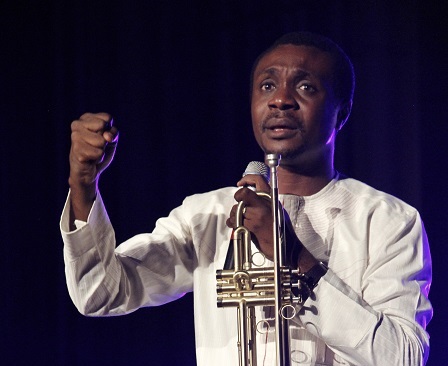![]()

Editor’s lens: English language brouhaha: Let’s find our balance
The Ghanaian music industry space has in recent times seen calls urging musicians to embrace wholly English lyrics if they aim to reach a global audience and make the space one of the country’s biggest export.
This call was notably articulated by Nigerian Gospel musician, Nathaniel Bassey, who asserted that singing in English was crucial for Ghanaian artistes aspiring to capture a broader international audience.
The call has left the music space and its actors grappling with the question of whether to fully embrace English lyrics to reach a global audience or to stay true to their linguistic roots.
While English serves as a universal language, it is crucial that our musicians weave the threads of their native languages into the music narrative and maintain a balance that will ensure that the global audience is captivated without sidelining the promotion of our cultural heritage.
Adding a strong voice to this is the acting Deputy Executive Director of the National Commission on Culture (NCC), Dr Richardson Commey Fio, who believes Ghanaian musicians possess a treasure trove of stories, emotions, and traditions embedded in our local languages and must portray that in their music.
He is of the opinion that the rhythmic poetry of Akan, Ewe, Ga and other local dialects that encapsulates the soul of our culture can create a unique music identity that will set Ghana apart.
Similarly, Graphic Showbiz believes this approach will not only ensure a global audience but also foster a deeper connection with fans who appreciate the authenticity of our music expressions.
(Related articles: Editor's Lens: Dear celebrities, guard your words, Editor's Lens: Voices of celebrities matter on national issues)
Just as South Africa and Nigeria have triumphed on the global stage without sacrificing their linguistic roots, Ghana can follow suit.
Embracing this is not a compromise; rather, it will be a celebration of our roots and serve as an invitation to open doors to a broader international audience that craves authenticity and cultural richness. Ghanaian music has the potential to become a universal language that speaks to the world.
Let us encourage our musicians to prioritise promoting Ghanaian culture and maintain a balanced blend of English and indigenous languages in their music as they chart a global cause. In doing so, our music will not only be heard but also celebrated globally.
